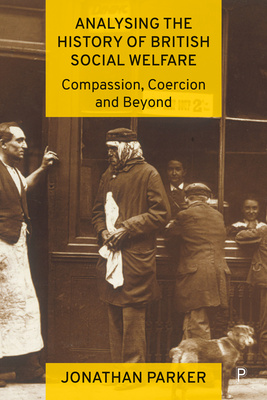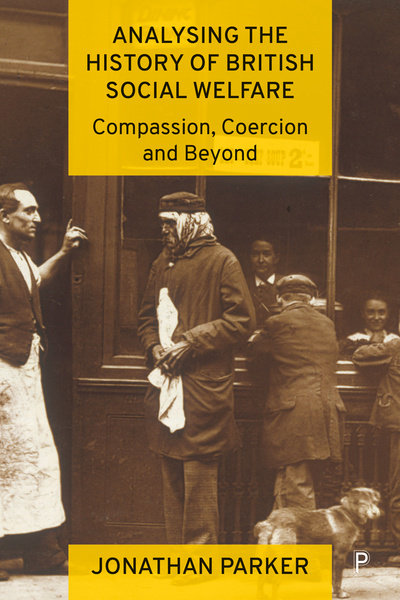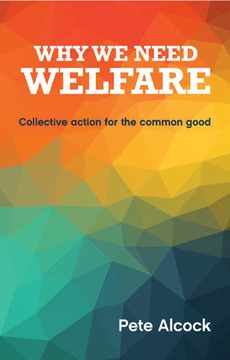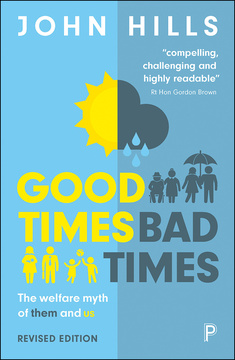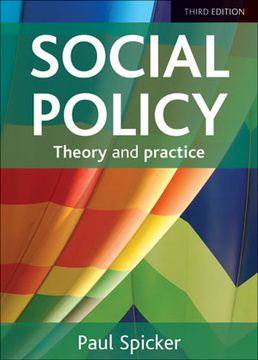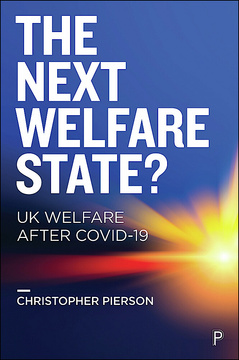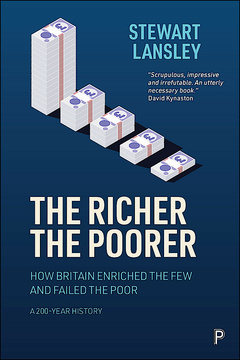Published
Apr 9, 2024Page count
248 pagesISBN
978-1447363705Dimensions
234 x 156 mmImprint
Policy PressPublished
Apr 28, 2023Page count
248 pagesISBN
978-1447363699Dimensions
234 x 156 mmImprint
Policy PressPublished
Apr 28, 2023Page count
248 pagesISBN
978-1447363712Dimensions
234 x 156 mmImprint
Policy PressPublished
Apr 28, 2023Page count
248 pagesISBN
978-1447363712Dimensions
234 x 156 mmImprint
Policy PressOn the blog:
Analysing the History of British Social Welfare
This book offers insights into the development of social welfare policies by exploring the interconnections between policies and practice throughout history.
It challenges tacitly accepted arguments that favour particular approaches to welfare, such as conditionality and eligibility. It provides examples of enduring social assumptions which influence the way we perform social welfare, such as the equivocal position of women in social welfare and the unintended consequences of reforms such as Universal Credit.
By identifying continuities in welfare policy, practice and thought, it offers the potential for the development of new thinking, policy making and practice.
“Parker has provided an insightful analysis of the history of the welfare state. In exploring why welfare policies follow certain paths, Parker offers a critical insight into welfare states development and its multiple potential futures.” Lee Gregory, University of Nottingham
Jonathan Parker is Professor of Society and Social Welfare at Bournemouth University and Honorary Visiting Professor at the University of Stavanger.
1. Concepts, Continuities and Critique
2. A Brief History of British Social Welfare
3. Philosophical Binaries and Normative Judgements
4. Chocolate, Flowers and Social Welfare Reform
5. War: The Paradoxical Crucible of Welfare Reform
6. Gendered Perspectives on Welfare
7. Piacular Austerity: Sacrificing the Poor for the Rich
8. Universal Credit vs. Universal Basic Income: Strange Bedfellows?
9. Containing the Radicals and Regulating the ‘Other’: A History of the Strange Case of Social Work
10. W(h)ither Welfare After Brexit and COVID-19?







